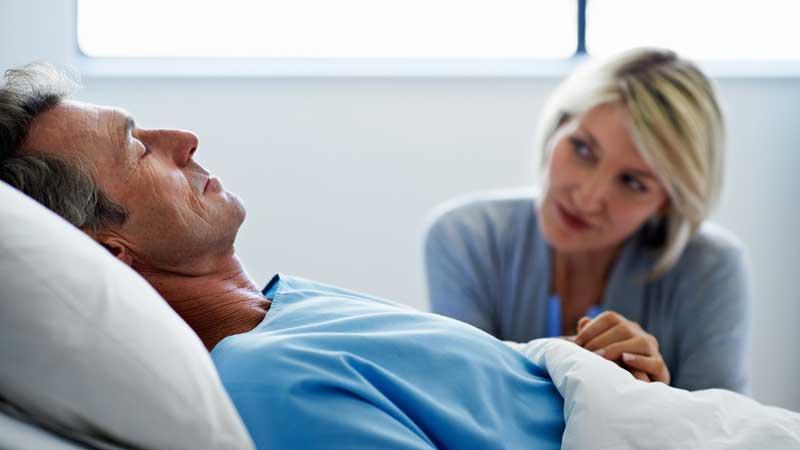先天性心脏缺陷手术

在某些情况下,你或你的孩子可能需要心脏手术来修复 先天性心脏缺陷. 以下情况可能需要手术:
- Repair a hole in the heart, such as a ventricular septal defect or an atrial septal defect
- 修复动脉导管未闭
- 修复复杂的缺陷, such as problems with the location of blood vessels near the heart or how they are formed
- 修理或更换阀门
- 扩张使狭窄的血管扩张
准备手术
对你来说,在手术中保持健康是很重要的. During the two weeks before the day of surgery it's a good idea to keep away from people who have a cold or fever. 如果你发烧了, 在此期间咳嗽或感冒, talk to someone on the cardiology or surgical team to decide whether the operation should be delayed.
You will be seen for preoperative counseling and testing the week before the scheduled surgery. 常见的术前检查包括心电图, 超声心动图, 胸部x光片和血液检查.
The surgeon’s office will let you know when to arrive and will provide any special instructions you should follow to prepare for surgery. Generally, you won’t be able to eat or drink for several hours prior to surgery.
How long your operation will take and how long you will need to be in the hospital depend on your heart condition and the operation that's being done.
在手术室里
包括心脏外科医生在内的团队, 麻醉师, 其他医生, 技术人员和护士将进行心脏手术. 当外科医生做手术的时候, 麻醉师给你麻醉并监测你的生命体征.
该团队将使用心肺机, 它也被称为体外循环机, 在心脏直视手术期间. The heart-lung machine allows the blood to bypass the heart so the heart can be emptied, 拆封修复. 旁路机器在血液进入心脏之前将其移除, 将其泵入一台机器,加入氧气,使其再次变红, 然后将红色血液泵回体内.
一旦心肺机开始工作,心脏被清空, 医生会给你开一些药物来阻止心脏跳动. 然后外科医生可以打开心脏并进行手术. 外科医生做完手术后, 他或她会关闭心脏, 让血液充满心脏,开始心脏跳动. Once the heart is pumping normally, the team will turn off and disconnect the heart-lung machine.
Some operations on the blood vessels next to the heart don't need the heart-lung machine. 这类手术被称为心脏闭锁手术.
输血
心脏手术经常需要输血. All blood donations are carefully screened to match your blood type and to rule out infections, 例如艾滋病和肝炎.
有时血液供应不足. You or family and friends may be able to 捐赠 blood in advance that may be used during your surgery.
在加护病房
手术后,您将进入重症监护病房(ICU)。. Specially trained doctors, nurses and technicians will give you round-the-clock care.
你的医生可能会做血液检查, 心电图, 超声心动图和胸部x光来监测你的心脏功能. You may also receive intravenous medications to increase your blood pressure or heart rate or to allow the body to get rid of extra fluid that builds up 在心脏直视手术期间. You will be kept as comfortable as possible with pain medications and sedatives.
ICU常用的监测和支持类型包括:
- 中心静脉(CVL, CVP或右心房线): 一个小管子, 叫做导管, that's used to give medications and fluids and to monitor the pressure in the veins. The tube is placed directly into the heart through the chest wall or through one of the large veins in the body.
- 动脉线(art线): 连续测量血压的导管. 导管通常被放置在手腕、腹股沟或脚的动脉中.
- 动脉血气(ABG): 从动脉线抽血的一种检查. 它提供了关于肺和心脏工作状况的信息.
- 氧饱和度(卫星监测): A small monitor attached to the finger or toe that allows the oxygen level in the artery to be monitored continuously.
- 机械呼吸机(呼吸机): This delivers oxygen to the lungs until you wake up from the operation and can breathe normally. The ventilator delivers oxygen to the lungs through a special tube called an endotracheal tube that's placed down the throat into the windpipe.
- 持续气道正压(CPAP): This special device is placed in your nostrils to deliver oxygen under pressure. This can keep the lungs expanded without the use of a mechanical ventilator.
- 鼻插管: 把小管子放进鼻孔里输送氧气.
- 胸管: A tube that's placed through small incisions in the chest wall into the space around the heart or the lungs to drain fluid and air produced by the operation. 你可能有一根或多根胸管. Your doctor will remove the tubes once the air and fluid drainage goes away.
- 弗利导管: A tube that's placed into the bladder to drain the urine continuously and make sure your kidneys are working properly.
- 节奏线: Small wires that are placed through the chest wall and attached directly to the heart. If you have an abnormal rhythm, these wires can restore the heart's normal rhythm.
进一步的住院治疗
离开ICU后, 你会去医院重症监护较少的区域, 通常称为“地板”或“降压单元”." In these areas your heart rate and rhythm may still be monitored using a continuous electrocardiogram system called telemetry. You will participate in a program that encourages coughing and deep breathing to help prevent lung collapse and infection. Engaging in normal activities, like walking and going to the bathroom, will help speed your recovery.
手术后良好的营养对你的恢复很重要. Some patients eat a low-salt diet to reduce the buildup of fluids in the body.
有些病人在手术后的头几天可能会发烧. 发烧可能是手术后的正常反应, 但如果高烧不退, 你的医生可能会做一些检查来找出病因和治疗方法.
At first, you may need pain medication, but pain often recedes within a few days after the operation.
When the doctors are satisfied that you are getting better, it will be time to go home. 医生可能会给你开止痛药或心脏药物,让你在家服用. 在你离开医院之前,确保你了解了所有的药物.
在家照顾你的孩子
The surgical team will give you instructions about wound care and how to cope with the effects of the surgery. Team members will also provide information on activity levels for your child after hospital discharge. They will tell you when your child can return to school and to gym class and sports activities.
一定要安排医院建议的任何后续预约. Provide your child with a heart-health diet and medications as prescribed.
如果你的孩子发烧,你应该打电话给你的外科医生或心脏病专家, 胸部疼痛, 呼吸困难, 或发红, 切口处肿胀或脓.





